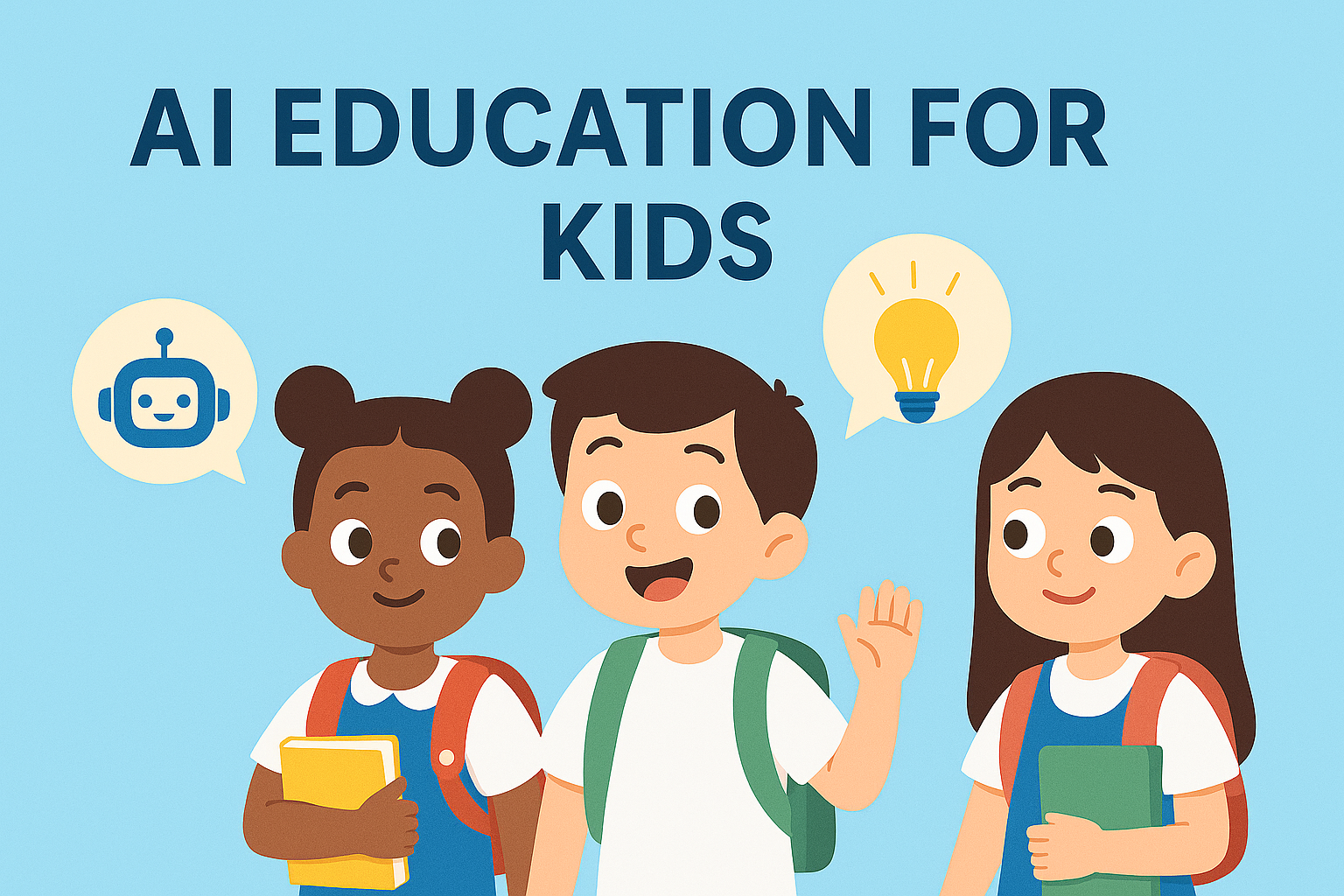Artificial Intelligence (AI) isn’t some distant future concept anymore. It’s here, actively reshaping how we live, work, and learn. For parents and educators, the question has shifted from whether children should learn about AI to how AI education for kids can benefit them.
No doubt, globally, teaching children about AI is becoming increasingly essential because it equips them with crucial skills like creativity, strong problem-solving abilities, and the technical literacy they need to thrive in our world of technology.

Why AI Education for Kids Matters Today
Children growing up in today’s digital world are already surrounded by AI—whether it’s voice assistants, smart devices, or educational platforms that adapt to their learning style. Introducing AI education for kids early gives them the confidence to understand the technology, not just consume it.
By learning how AI works, kids develop critical thinking, creativity, and an ethical awareness of technology—skills that will be in demand in the future workforce.
How to Teach AI to Kids: Simple Steps for Parents and Teachers
Teaching AI doesn’t have to be complicated. Parents and educators can start small:
- Explain AI using everyday examples like chatbots or virtual assistants.
- Use stories and games to show how machines “learn.”
- Encourage kids to ask questions about technology they already use.
With the right guidance, how to teach AI to kids becomes less about coding from day one, and more about sparking curiosity.
The Best AI Learning Tools for Children
There are plenty of AI learning tools for children designed to make the subject fun and engaging. Platforms like Scratch, Cognimates, or even kid-friendly robotics kits allow children to experiment with AI concepts at their own pace.
The best tools are interactive, age-appropriate, and encourage problem-solving instead of passive screen time.

Fun and Age-Appropriate AI Activities for Kids
Practical learning is where children thrive. Here are a few AI activities for kids that are both fun and educational:
- Creating simple chatbots with drag-and-drop platforms.
- Playing AI-powered games that teach logic and decision-making.
- Using drawing or storytelling apps that adapt to a child’s creativity.
When choosing activities, it’s important to consider age-appropriate AI education so that concepts remain accessible and enjoyable.
Ethics and AI Literacy in Schools
As AI becomes part of daily life, so does the need for AI literacy in schools. Children should understand not only what AI can do, but also its limitations and ethical concerns. Discussions about fairness, privacy, and responsible technology use help build a balanced view.
Teaching the ethics of AI for children ensures they grow up to be responsible digital citizens, not just skilled users.
Preparing Kids for Future Skills with AI
The goal of AI education for kids isn’t just to teach them about algorithms—it’s to prepare them for life. By exploring AI, children gain future skills such as:
- Critical thinking
- Problem-solving
- Creativity
- Collaboration
- Digital ethics
AI can personalize learning, adapting to each child’s strengths and weaknesses. This personalized learning with AI helps kids progress at their own pace, building both confidence and competence.
Final Thoughts on AI Education for Kids
AI education for kids is more than a trend—it’s a pathway to raising creative, adaptable, and responsible learners. By introducing AI concepts early, using fun tools and age-appropriate activities, and guiding children through ethical discussions, we can prepare them for a future where technology is both a tool and a responsibility.


